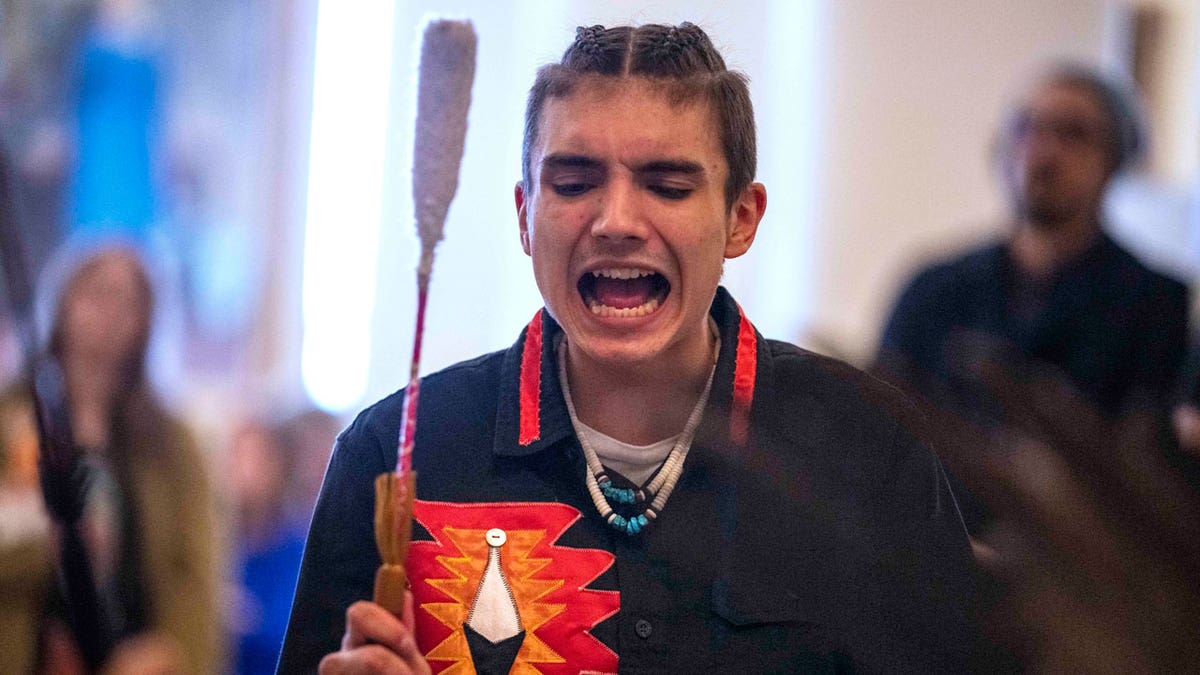Fox News Flash top headlines for March 16
Fox News Flash top headlines are here. Check out what's clicking on Foxnews.com.
Tribal leaders in Maine, who have long sparred with state leaders over the issue of sovereignty for Native American tribes, used their first address to the Maine Legislature in 21 years to call for greater autonomy.
The tribes hope to alter the Maine Indian Land Claims Settlement Act of 1980, which treats reservations like municipalities that are subject to state law. Other federal recognized tribes are treated like sovereign nations, and Maine tribes’ different status has led to conflicts with the state over issues such as natural resources and economic development.
It's time to modernize the agreement between state government and Maine tribes, because the current arrangement makes Maine Native Americans "outliers in Indian Country," said Clarissa Sabattis, chief of the Houlton Band of Maliseets.
WISCONSIN NATIVE LEADER CALLS ON LEGISLATURE TO IMPROVE HEALTH INFRASTRUCTURE
"I look forward to forging a new path forward that is not only better for our tribe but also better for this great state that we all call home," Sabattis said.
Other speakers at Thursday's State of the Tribes address were: Edward Peter Paul, chief of the Aroostook Band of Mi’kmaqs; William Nicholas, chief of the Passamaquoddy Tribe at Motahkomikuk; Rena Newell, chief of the Passamaquoddy Tribe at Sipayik; and Kirk Francis, chief of the Penobscot Nation.
The address drew a large crowd to the Maine State House, with lawmakers and tribal members filling the Maine House of Representatives chamber, and dozens more tribal activists and allies filling other rooms in the state house to watch the speech on television.
Gov. Janet Mills, a Democrat, did not attend the speech due to a scheduling conflict, said Ben Goodman, a spokesperson for the governor. Mills and the tribes have been at odds over the issue of greater tribal autonomy during the past year.

Maine Native tribes called for sovereignty in a rare address to the Legislature. (AP Photo/Robert F. Bukaty)
A proposal to grant tribal sovereignty was tabled by the Maine Legislature last year when Mills threatened to veto it. Lack of sovereignty puts Native Americans in Maine at a disadvantage compared to hundreds of tribes across the country, tribal leaders have long argued. Mills said last year that she feared the proposal would yield years of litigation, and that more communication between the tribes and state was needed.
On Thursday, the governor invited the tribal chiefs to meet with her "to continue the communication, collaboration, and compromise that formed the basis for progress in previous legislative sessions," Goodman said.
Thursday's speech was preceded by a rally and tribal drumming at Maine State House. It was the second address of its kind, as the first State of the Tribes was held in March 2002.
CALIFORNIA NATIVE AMERICAN TRIBE SUES BIDEN ADMIN, SAYS CONTRACTORS OWE $340M IN DAMAGES
All five tribal speakers said the tribes need more autonomy from state government. They also touched on issues such as the need to improve tribal health care services, education and business growth.
Francis said Maine tribes are "stuck in 1980 policy" because of the lack of sovereignty.
"All we want is for state government to break decisively from the past and join the era of self-determination," Francis said.
The first State of the Tribes event included a resolution by the Maine Legislature that stated the indigenous tribes "have lived in what is now Maine for thousands of years" and "continue to play a vital role in the life of the state and are an integral part of the social, economic and legal fabric of the state."
CLICK HERE TO GET THE FOX NEWS APP
State leaders said in a statement that Thursday's event was "a part of ongoing legislative work to strengthen the relationship between Maine and its tribal neighbors."










































